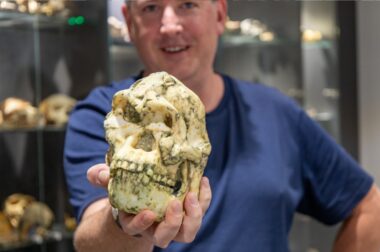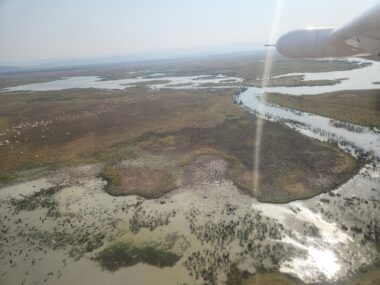
Marking the first 100 years of the quantum era
And the beauty of the science that we use daily to connect with the world, light our homes, fight disease, and scan our groceries.
The UN has declared 2025 as the International Year of Quantum Science and Technology. The Year will be launched on 4 February in Paris.
You’ll hear much more at events throughout the Year and across Australia.
Australian physicists and science communicators are available for interview this week and next:
• How has quantum science changed our lives?
• Why is the quantum world different?
• What’s coming next?
• Why celebrate in 2025?
• Why jobs and growth depend on physics, maths and quantum science?
• Australia’s leadership in quantum science.
We can observe gravity in the fall of an apple. We can see the spectrum of visible light with a prism. Observing the subatomic world is harder but one hundred years ago we opened the door to a new understanding of the natural world.
The laws of quantum mechanics, established in 1925, have allowed humanity to explore nature at the subatomic scale, where fundamental particles behave as both waves of energy and particles of matter.
These rules have enabled us to start to understand how light, electrons and atoms behave leading to many inventions including
• The LEDs that light our homes and our TV screens in the 21st Century
• The lasers that scan our groceries and correct our vision
• The microchips at the heart of every smartphone, computer and modern car
• The medical imaging devices that have saved countless lives in the fight against cancer and other diseases
• The solar panels and batteries that will enable us to live at net zero.
Today, Australia is at the forefront of the race to develop new quantum technology that will enhance our lives. We’re developing navigation systems that don’t require satellites. We’re creating miniaturised sensors that can detect disease, monitor metal fatigue and find critical minerals. We’re inventing cheaper and more efficient solar and battery technologies, and racing to create quantum computers.
What is quantum science?
New Scientist says, “It’s our best basic picture of how particles interact to make the world. It’s the physics that explains how everything works: the best description we have of the nature of the particles that make up matter and the forces with which they interact.”
“Quantum physics underlies how atoms work, and so why chemistry and biology work as they do. You, me and the gatepost – at some level at least, we’re all dancing to the quantum tune. If you want to explain how electrons move through a computer chip, how photons of light get turned to electrical current in a solar panel or amplify themselves in a laser, or even just how the sun keeps burning, you’ll need to use quantum physics.”
(https://www.newscientist.com/definition/quantum-physics/)
How did quantum science develop?
In the late 19th Century and early 20th Century many people started to explore ‘the smallest particles – quanta’.
A photon is a quanta of light, and an electron is a quanta of electricity.
They realised that these quanta have discrete energies, jumping between levels.
At a human scale things change gradually. At the atomic or quantum scale, things jump from one level of energy to another.
The pioneers of these ideas included Albert Einstein, Niels Bohr, Max Planck and many others.
By 1925, these quantum ideas came together in quantum mechanics – rules that describe the quantum world, including the work of Paul Dirac, Heisenberg and his uncertainty principle, Schrodinger and his cat.
PBS has a nice description of the history here: https://www.pbs.org/transistor/science/info/quantum.html
Australia is good at this.
Australia is leading the race to build quantum computers using silicon – so that they can be made using today’s computer chip foundries and quantum technology will enable much more, accelerating innovations in materials science, medicine, and cybersecurity, among other fields.
It’s not just quantum computing. There’s
• quantum positioning (navigation without GPS)
• quantum sensing for health/environment/everything
• quantum biology
• quantum chemistry
• and we need quantum science to find dark matter and understand how the Universe works.
We’re in the quantum age and it’s moving faster. We need
• Everyone to better understand quantum science
• Young people to retain maths and physics at school so that they can get jobs in quantum fields – research, data, policy, health – almost every modern field of science is affected by progress in quantum science.
So, during Quantum Year we hope to
Educate – Reveal and explain the wonders of quantum science and its impacts on our lives today and into the future.
Inspire – Ignite the nation's curiosity about the beauty and promise of the quantum world and inspire people of all backgrounds to pursue careers in science and technology.
Celebrate – Celebrate worldwide achievements in quantum science and technology, spotlighting Australia’s pioneering leadership in this endeavour.
To find out more about plans in Australia for the Quantum Year, register events and get involved, visit quantum2025.org.au.
Contact details:
For media interviews, contact Niall Byrne, [email protected], 0417-131-977 or
Jacqui Tyack, [email protected], 0422-999-088.


